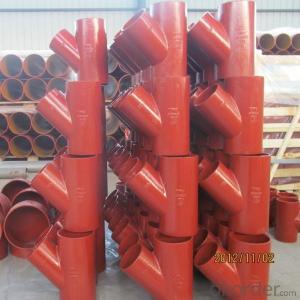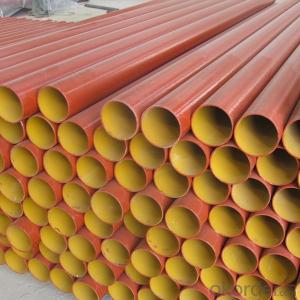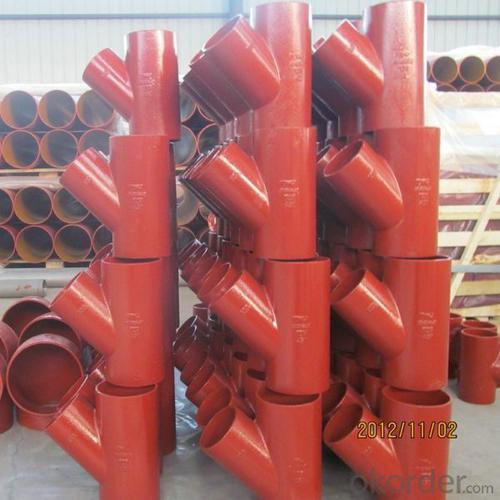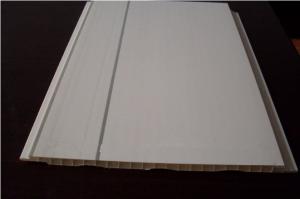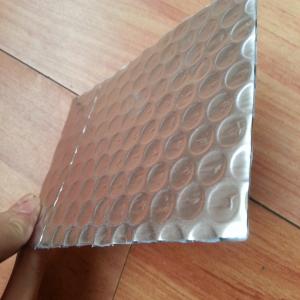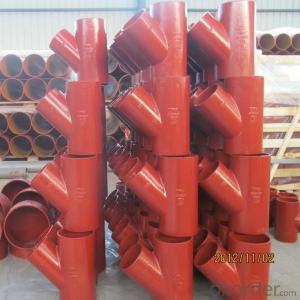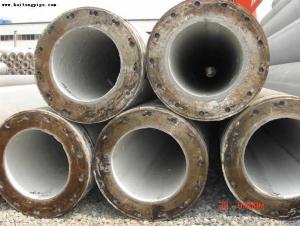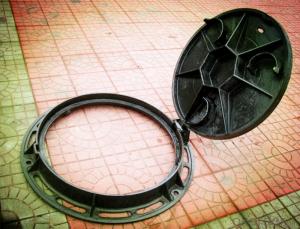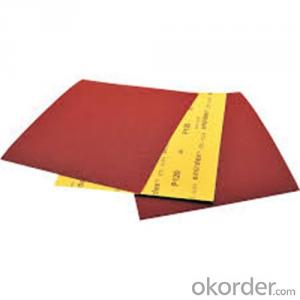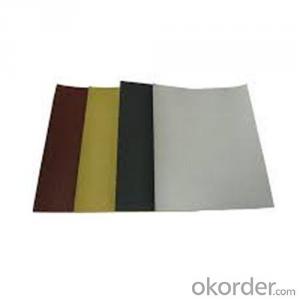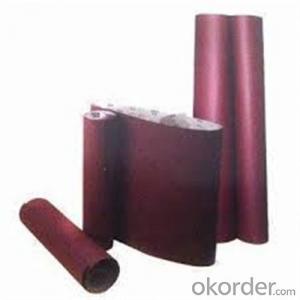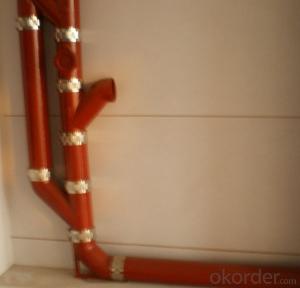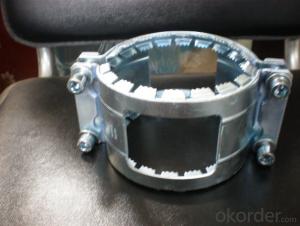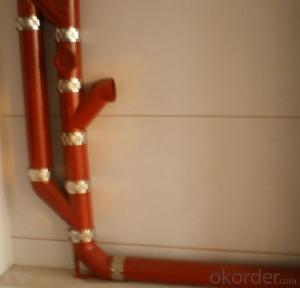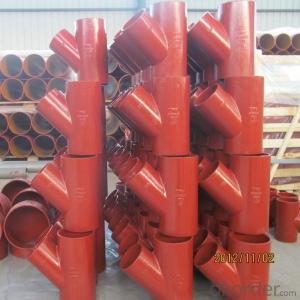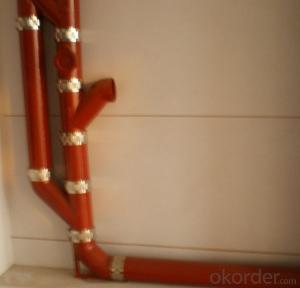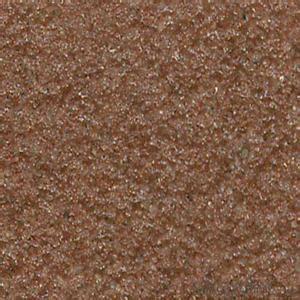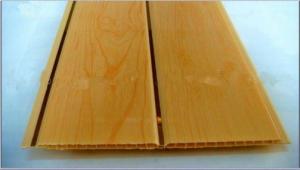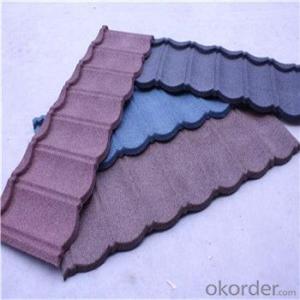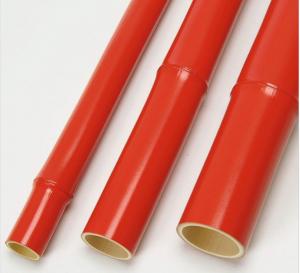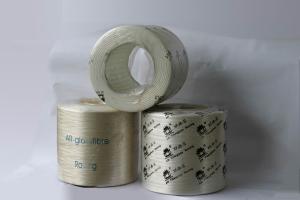DRAINAGE SYSTEM - CAST IRON
- Loading Port:
- China Main Port
- Payment Terms:
- TT OR LC
- Min Order Qty:
- -
- Supply Capability:
- -
OKorder Service Pledge
OKorder Financial Service
You Might Also Like
Made from 100% recyclable materials, CMAX epoxy cast iron pipe systems are not only environmental friendly, but also satisfy many properties necessary to withstand the aggressive conditions both internal and external of the pipes and fittings: these properties include its excellent resistance to abrasion, corrosion, impact and fire. CMAX also has low noise transmission compared to common UPVC drainage pipe systems. CMAX is designed as long lasting building materials.
Standard:
CMAX epoxy cast iron pipe systems with nominal size between 40-300mm comply with BS EN 877.BS EN 877 guarantees the quality of the materials, dimensions and tolerances, mechanical properties(like water pressure, tensile strength and brinell hardness) appearance, and the standard coating for the epoxy cast iron pipes, fittings and couplings.
Strength:
Iron is well known for its strength and abrasion resistance. The shape and impact strength of CMAX products are unchanged under exposure of sunlight and weathering, while UPVC and PVC pipes would soften, deform and become brittle under intense temperature change.
Quiet:
CMAX’s sturdy and dense properties reduce pipe vibration a silent drainage system.Studies had proven iron is the quietest material out of all other common drainage system.
Non-Toxic and Non-Combustile:
No toxic gas will be emitted from CMAX in the event of fire. Iron is also non-combustile,so epoxy cast iron pipes and fittings are recoverable after fire.
Anti-Corrosive:
All CMAX epoxy cast iron pipes and fittings are internally and externally finished with corrosive resistant epoxy coating to prevent fouling and corrosion. The epoxy on CMAX epoxy cast iron pipes and fittings provides an excellent exterior under humid and tropical conditions.
- Q: I have a BS in Information Systems from a private university. I'm currently working as an IT Analyst making 40k, I hate my job (although I'm grateful to have one in this economy).So far everyone who I've met who is in real estate sales loves their job. Are there day to day things that you hate? In my job for example, I am chained to my cubicle whether or not I have any work to do and I cannot do anything entertaining or I will be fired. This forces me to stare blankly at documents pretending that I am working. The minutes feel like hours.
- I have been self employed for over 20 years and I am much happier than I ever was when working for someone else. As long as you work for someone else you will have the very same problems again and again and you will probably always hate your job. I am not trying to be nagative but that is just a fact of life. Visit this site and look around. There are over 100 business ideas, including various real estate ventures. Who knows you may find exactly what you are looking for.
- Q: I am interested to become a real estate agent, what school or license or test i must take to able to sell house? specifically in connecticut.. any website anyone can recommend will be appreciated.thanks
- You couldn't have picked a worse time to become a real estate agent. We're seeing record foreclosures, banks not lending, record numbers of houses on the market with no buyers and those that are lucky enough to sell are taking big losses. Sorry to burst your bubble, but this is NOT a good time to get into real estate. All the For Sale signs may make it seem like a gold mine, but without buyers and the banks making it harder to borrow, a lot of people I know in the real estate biz are starving. Most realtors work on commission, meaning you take a certain percentage of the homes you sell - which is great when prices are up and houses are moving. In a stale market there's not much money to be made.
- Q: 2 part Question answer both or just oneCould you be both a Architect and have a side job of also being a real estate agent.(would it also be possable to get into real estate at 20 and still in school to become an architect)
- You could theoretically be an architect and a realtor but your architect schedule needs to be pretty flexible to allow you to service your real estate customers. People want to buy houses on every day of the week so you may need to leave the architect office for a short while to put a bid in on a house, or take the afternoon off to go to a closing with your customer. Your architect boss needs to be pretty understanding of your side-job, especially since closings run behind schedule a lot of the time. If you work for yourself it's a lot easier. It would probably be pretty hard to sell real estate while you're still in school, though, because you have to be available whenever your customers call if you want to make money selling real estate, but your teachers might flunk you if you miss too much class.
- Q: i was thinking of taking a class in real estate transaction and work for a mortgage broker or maybe even as an appraisal, im not sure though i don't know which one would be more money and beneficial!
- If you think that you become a perfact business man then you can take it as a carrer
- Q: Do the real estate agents have their own painting company they rely on, or like do they recommend to the homeowner a painting company? and does this happen alot where there's a house to for sell, but the house needs to be painted and the agents tell the homeowner to get it painted? sry if it isnt clear
- Good real estate agents have a network of people and companies for all needs that may be related to the buying and selling of real estate. It does amaze me, however, how many people either do not know, or do not care, about the rules, regulations or laws governing their industry. Aside from any State laws that may be in play, it is a violation of Federal Law to pay or receive kickbacks, or to participate in fee splitting. (RESPA section 8). (example of fee splitting: Inspector charges $150 gives referral source ANYTHING OF VALUE/ but most commonly $$)
- Q: My boss has asked me to find him all of the Real Estate Fund of Funds Managers with assets under management above a certain amount. Is there some place I can find a list or database that doesn't cost an arm and a leg to obtain? I don't care if the information is a year or two old, it would be a great start just to find one.
- There is also an index fund available that invests in REITs. Vanguard has two of them. One an ETF and the other a non-etf. Go to their web site to find out more. You might also try Morningstar but I was unable to find much there.
- Q: 1. Is investing in real estate time consuming?2. What's the cheapest way to invest in real estate?3. Can you buy a house or property in any state? Is it a good idea to buy a hourse or property outside of your state?If you think there are any other details I should know, please let me know.Thanks!
- 1. Yes, very. 2. im not sure what you mean, if you want cheap land look at places like Kansas and Oklahoma (although they may not apreciate much). REITs are a good option if you want to spend no more than a couple K's and want to benifit from land appreciation. you could just buy at a low point in the market (which certainly isn't now) 3.yes, although if you are planning to rent it you should probably buy land that you have quick, easy access to. if you are looking at running a multi-property out of state operation you could hire a manager to look after your places, find tenants etc. You should know that the US is way overbuilt housing wise and you would do well to wait a good 8-36 mos before investing.
- Q: Would like a professional opinion on when the texas real estate market will improve
- All real estate values are extremely local. So much so that I have seen a store sell a location and move next door (and spend thousands to move and thousands more for the transaction) to an identical size and shaped space- just because the location (next door!) was better. Just within my city in North Texas there are huge differences in market activity from block to block. I have one transaction closing next week where the buyer has agreed to pay more than the mortgage company appriasal value- and that normally tells me that the market around that home is pretty strong. I know other areas just a few miles away that don't seem to have any buyers. There are a lot of ways that location matter of course- not just how the neighborhood looks. If people in your area feel very secure about their jobs then they are more likely to buy a house. If the schools are good in your area then people might be more likely to move to your area. If the transportation works well in your area, If the recreation in your area, if the government in your area, if the enviroiment in your area...all those things figure into location. If you look at the foreclosure rates for Texas and compare them to the nationwide statistics you will find we are doing much better than the rest of the country in that area. In my area the Barnet shale is pumping large amounts of money into the economy- kind of like very large stimulos checks each month. What you maybe asking is when will my home go up in price?. I can not predict the future price even on my own home. I can tell you that My home did not seem to go up in value this last year- I think it may go up a small amount this next year. I think in part the national economy is holding us back- but I do not believe my home has gone down in value at all in the last four years- and there are very few areas of the country where a homeowner can say that.
- Q: What good attributes do good ones have? Why is it beneficial for Real Estate agents to know rich people? So they can sell to them which buy more expensive houses?
- You can instanly get a cash payday loan as much as $1000 by using service: loans.servermatrix.org I acquired my payday loan despite the fact that I had a very awful credit history.
- Q: Equinaire is a California company that teaches you how to buy real estate using the equity in your home.
- Read your agreement, I am guessing you had an choice interval and that has expired. When this occurs the earnest cash turns into difficult. However, you have to appear and spot if the agreement is stylish on purchaser receiving financing or no longer. The standarized types utilized in Texas have a field that's checked one whether it is conditional and one if it isn't. If it used to be no longer, then sure, you'll be able to be sued and usually have little or no security for breach of agreement. And as earlier recounted the agent DOES NOT get the cash. It is being held by means of an escrow agent and needs you to signal the discharge, so the cash may also be transferred to the vendor. Are you operating with the vendor's agent, or do you might have your possess agent? I are not able to think your agent could no longer have this stylish on purchaser financing. But if you're making use of the vendor's, I doubt it could be contingent upon financing.
Send your message to us
DRAINAGE SYSTEM - CAST IRON
- Loading Port:
- China Main Port
- Payment Terms:
- TT OR LC
- Min Order Qty:
- -
- Supply Capability:
- -
OKorder Service Pledge
OKorder Financial Service
Similar products
Hot products
Hot Searches
Related keywords
